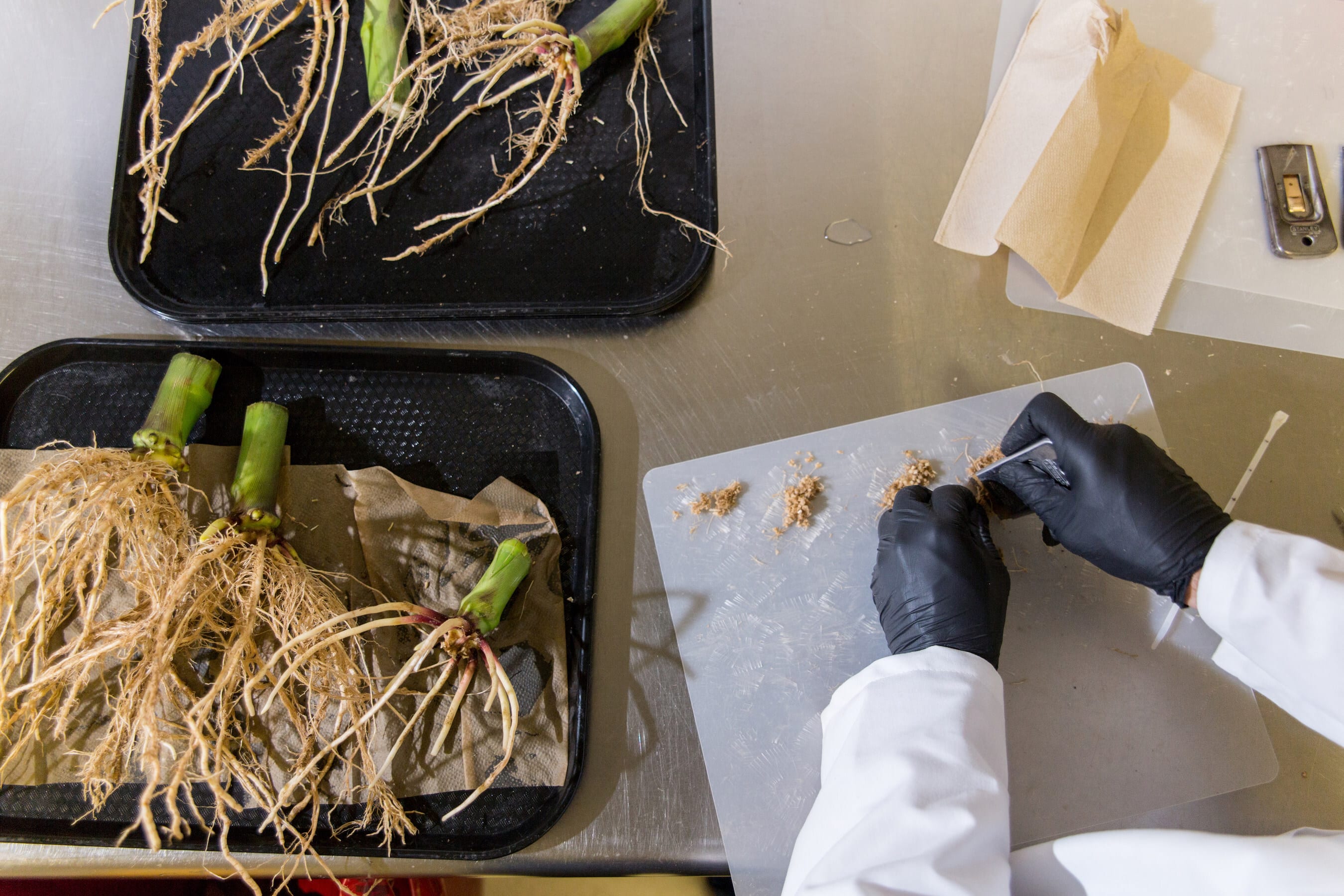Key Takeaways:
- Gene-edited microbes were shown to transfer atmospheric nitrogen to crops, potentially reducing synthetic nitrogen fertilizer needs.
- A study by researchers from the University of Wisconsin-Madison, Purdue University, and Pivot Bio examines a new approach to biological nitrogen fixation in crops.
- Field studies indicated that the microbes could provide nitrogen amounts comparable to up to 40 pounds of synthetic fertilizer per acre.
- The study marks the first peer-reviewed research on Pivot Bio’s nitrogen-fixing product, PROVEN® 40, which has been used on over 13 million acres in the U.S.
- Researchers note that this approach could reduce reliance on synthetic fertilizers, offering potential environmental and economic benefits.
Study Explores New Approach to Nitrogen Supply in Crops
Research published today in Scientific Reports introduces a method that utilizes gene-edited microbes to supplement nitrogen for crops, presenting a possible alternative to synthetic fertilizers. This peer-reviewed study, conducted by scientists from the University of Wisconsin-Madison, Purdue University, and Pivot Bio, details how these microbes could support biological nitrogen fixation in crop systems.
Nitrogen is essential for plant growth, yet traditional synthetic fertilizers are often associated with environmental impacts, including runoff and greenhouse gas emissions. The research team used isotopically labeled nitrogen to trace nitrogen’s journey from the atmosphere into corn leaves, providing evidence of nitrogen fixation by the gene-edited microbes. Field trials indicated that these microbes could provide nitrogen amounts equivalent to up to 40 pounds of synthetic fertilizer without affecting crop yield.
“This study shows an alternative approach that may support nitrogen needs in a way that could reduce synthetic fertilizer dependency,” noted Dr. Jean-Michel Ané, a professor of bacteriology at the University of Wisconsin-Madison and a co-author of the study.
Gene-Edited Microbes and Nitrogen Fixation
At the center of this study are diazotrophs, naturally occurring bacteria capable of converting atmospheric nitrogen into ammonium, a form that plants can use. While diazotrophs traditionally reduce nitrogen fixation when exposed to nitrogen-rich soils, the research team used non-transgenic gene-editing techniques to help these bacteria continue nitrogen fixation even in high-nitrogen conditions.
“By gene-editing the microbes, they continue fixing ammonium for the plant even in soils that already contain nitrogen,” said Dr. Karsten Temme, chief innovation officer and co-founder at Pivot Bio. “This could potentially allow farmers to manage nitrogen more efficiently.”
The product examined, PROVEN® 40, includes these gene-edited microbes and has been applied to millions of acres across the United States, according to Pivot Bio. This study provides the first peer-reviewed findings on its effectiveness, focusing on field and lab results that point to consistent nitrogen levels in treated crops.
Laboratory and Field Findings
In controlled environments, researchers traced isotopic nitrogen to confirm the microbes’ nitrogen fixation. They then extended their work to field plots, where nitrogen levels were monitored to assess the impact of Pivot Bio’s microbes under typical growing conditions. Farmers participating in trials reported reduced synthetic nitrogen applications by 35-40 pounds per acre, while yield levels remained consistent.
Tracking nitrogen from the air to plants is complex, noted Dr. Ané, but through isotopic markers, researchers could identify nitrogen in corn leaves originating from atmospheric sources, indicating that the microbes played a role in nitrogen transfer to the plant.
Implications and Future Considerations
The research suggests potential applications for gene-edited microbes in crop production, though further studies are likely needed to explore broader implications, such as long-term environmental effects and economic feasibility. PROVEN® 40 is already available commercially, and Pivot Bio reports that it has been applied to 13 million acres since its release.
Dr. Bruno Basso, a professor of environmental science at Michigan State University not involved in the study, commented, “If research continues to support these initial findings, this technology could become a tool in reducing reliance on synthetic nitrogen fertilizers, though environmental and operational impacts should be assessed over time.”
Read the complete study here.


